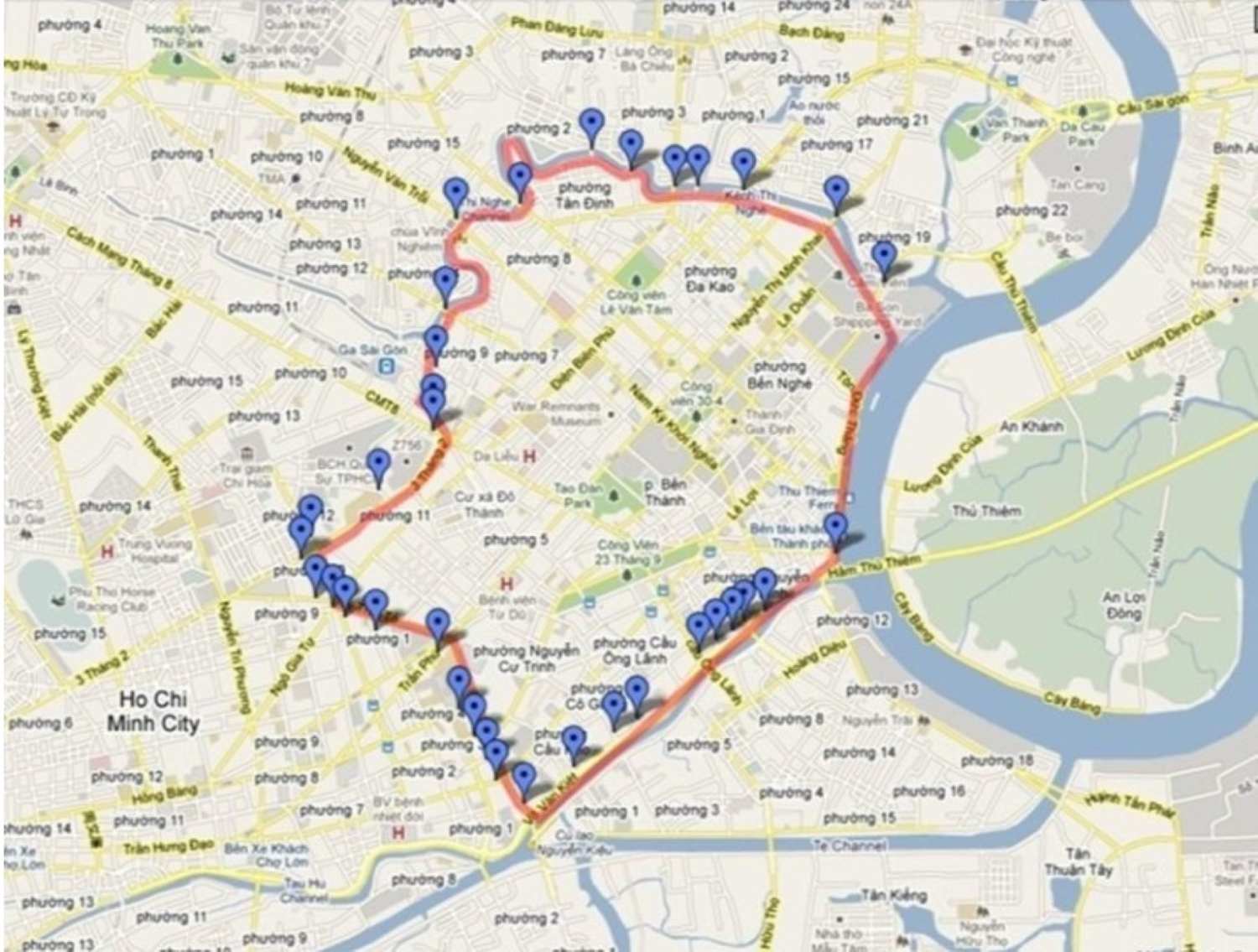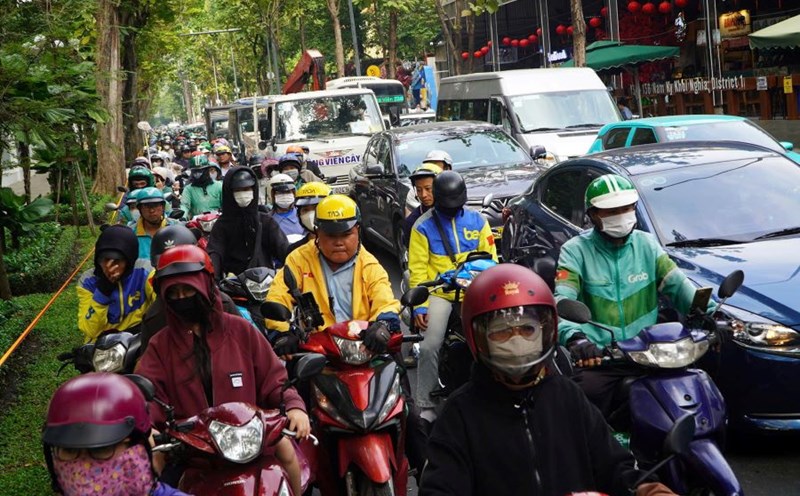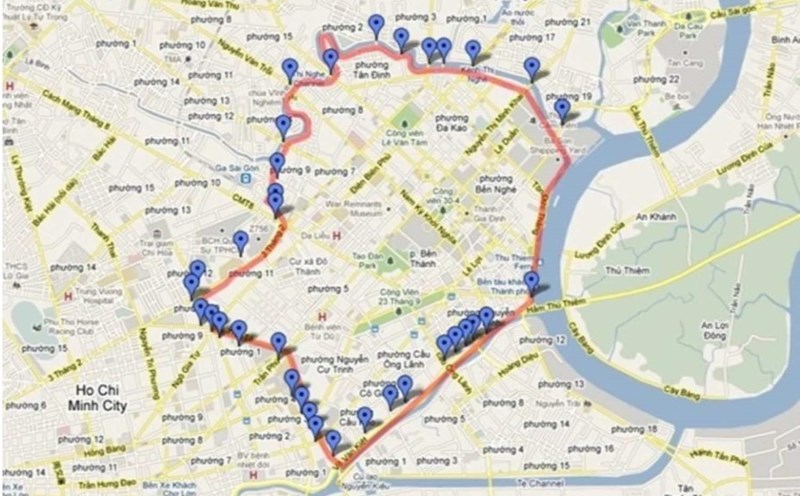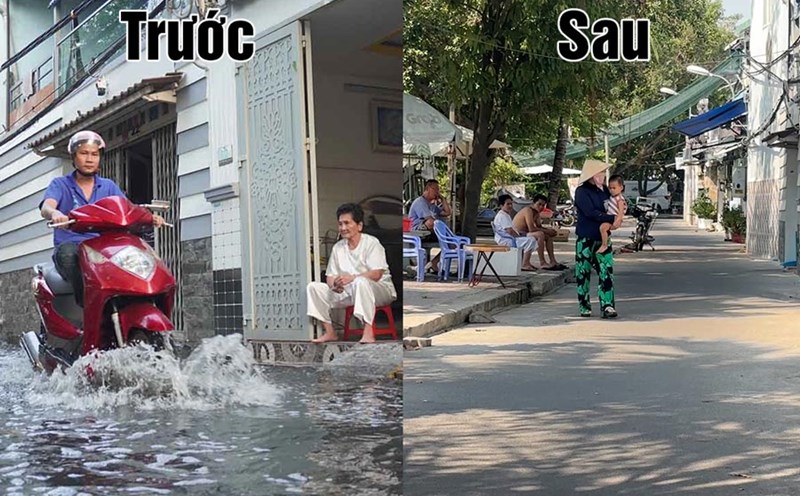On the morning of August 8, the Ho Chi Minh City Department of Construction held a meeting to listen to a presentation on the project to control vehicle emissions, with the participation of representatives of departments, branches and many related units.
According to the project, Articles 141, 142 of the Law on Environmental Protection 2020 stipulate that localities are allowed to apply financial support mechanisms, tax and fee incentives to promote vehicles using clean energy.
At the same time, Resolution 98 gives Ho Chi Minh City the right to issue and adjust special fees and charges that are not stipulated in the Law on Fees and Charges.
This helps the city proactively design financial support packages, both investing in green transport infrastructure (charging stations, bicycle lanes), and subsidizing and giving preferential fees to electric vehicles.
Many major cities in Asia such as Chengdu, Guangzhou, New Delhi or Jakarta have also applied similar policies: 10 - 20% subsidy when buying electric motorbikes, free registration, support for installing charging stations in residential areas, recalling old gasoline vehicles in exchange for incentives when buying electric vehicles...
On that basis, the project in Ho Chi Minh City proposes to apply the following policies from 2025 - 2030:
- 50% reduction in registration and license plate fees for motorbikes and electric motorbikes.
- Subsidy of 10% of the purchase price, but not exceeding 5 million VND/vehicle for individuals and households buying new vehicles.
- Support 20% of loan interest rates in the first year, calculated on the average interest rates of 4 major commercial banks in the city, plus management fees of 2%/year.
- Compensation for about 70% of the remaining value when people liquidate gasoline-powered motorbikes in low emission zones.
In addition to the policy for motorbikes, the project also offers many incentives for electric car buyers:
- 50% reduction in registration and license plate fees.
- 50% reduction in road maintenance fees.
- Support 10% of loan interest rates in the first year, calculated on the average interest rates of 4 major commercial banks in the city, plus management fees of 2%/year.
- In addition, according to Decree 51/2025/ND-CP, battery-powered electric cars are exempted from 100% of registration fees until February 28, 2027.

The project to control vehicle emissions also proposes to establish a low-emission zone (Low Emission Zone - LEZ) in the central area by 2026.
This area is bordered by 15 bridges and 17 main roads, forming an emission control belt.
From 2026, commercial cars that do not meet Euro 4 emission standards and service motorbikes that do not meet Euro 2 standards will be restricted from circulating in the area. In particular, heavy trucks running on diesel will be completely banned.
The city will prioritize environmentally friendly vehicles such as vehicles using clean energy, renewable energy, zero-emission vehicles or vehicles with special licenses.
From 2027 to 2032, the LEZ scope will be expanded, applying restrictions to all motorbikes below Euro 2 standards and cars below Euro 4 standards.
After 2032, emission standards will continue to rise, and the low-emission zone is expected to expand to the Ring Road 1 area.











